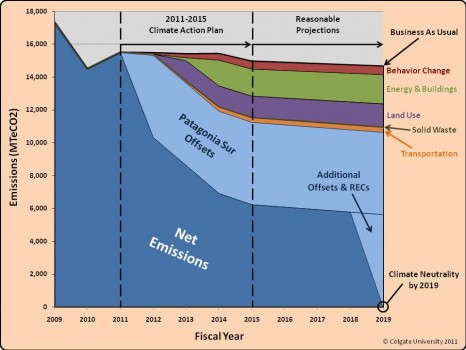Earlier this week, the Intergovernmental Panel on Climate Change (IPCC) released the synthesis report of their 2014 Fifth Assessment Report (AR5). The release of this major new United Nations report is the most troubling and scientifically conclusive report yet. For me, the 100+ page report can be boiled down to three simple and profound scientific realities.
First, we must limit global warming to below 2 degrees Celsius from pre-industrial levels or we will suffer from “severe, pervasive and irreversible impacts for people and ecosystems.” Temperatures have already risen 0.8 degrees Celsius.
Second, limiting warming to 2 degrees Celsius gives us a remaining carbon budget of about 1 trillion tons. That may sound like a lot, but given our current rate of burning fossil fuels, we have less than 30 years to wean ourselves off of coal and oil. Since severe climate impacts are already upon us, the passing years promise to bring greater catastrophes and human suffering with every increased ton of carbon burned.
Third, the world’s major energy companies have several trillion tons of known fossil fuel carbon waiting in reserves. These companies are valued on their known reserves and they have every intention of burning all of it. To make matters worse, these companies are spending an addition $600 billion annually in search of new sources of coal and oil. If these reserves are burned, we will be putting ourselves and our children and grandchildren in a very perilous situation.
As one of America’s top higher education institutions, Colgate University places great value on scientific research and integrity. Our commitment to carbon neutrality by 2019 confirms our institution’s belief in the overwhelming and conclusive science behind climate change (see specific text of ACUPCC). It is also Colgate University’s mission to educate and prepare students for civic life and work in the 21st Century (see the 13 Goals of a Colgate Education approved by the Academic Affairs Board in 2010). In order to achieve this mission, we must not only educate all students on the science, impacts, and possible solutions to climate change, but we must also continue to reduce and eventually eliminate all carbon emissions associated with our campus operations.
Achieving this shared goal will not be easy, but it must be done.
Right now, faculty, staff, and students on Colgate’s Sustainability Council are working to develop our road-map to carbon neutrality by 2019. We need your help. Please comment below or share any ideas you have with the chair of the Sustainability Council, Catherine Cardelus (ccardelus@colgate.edu) or director of sustainability, John Pumilio (jpumilio@colgate.edu).


